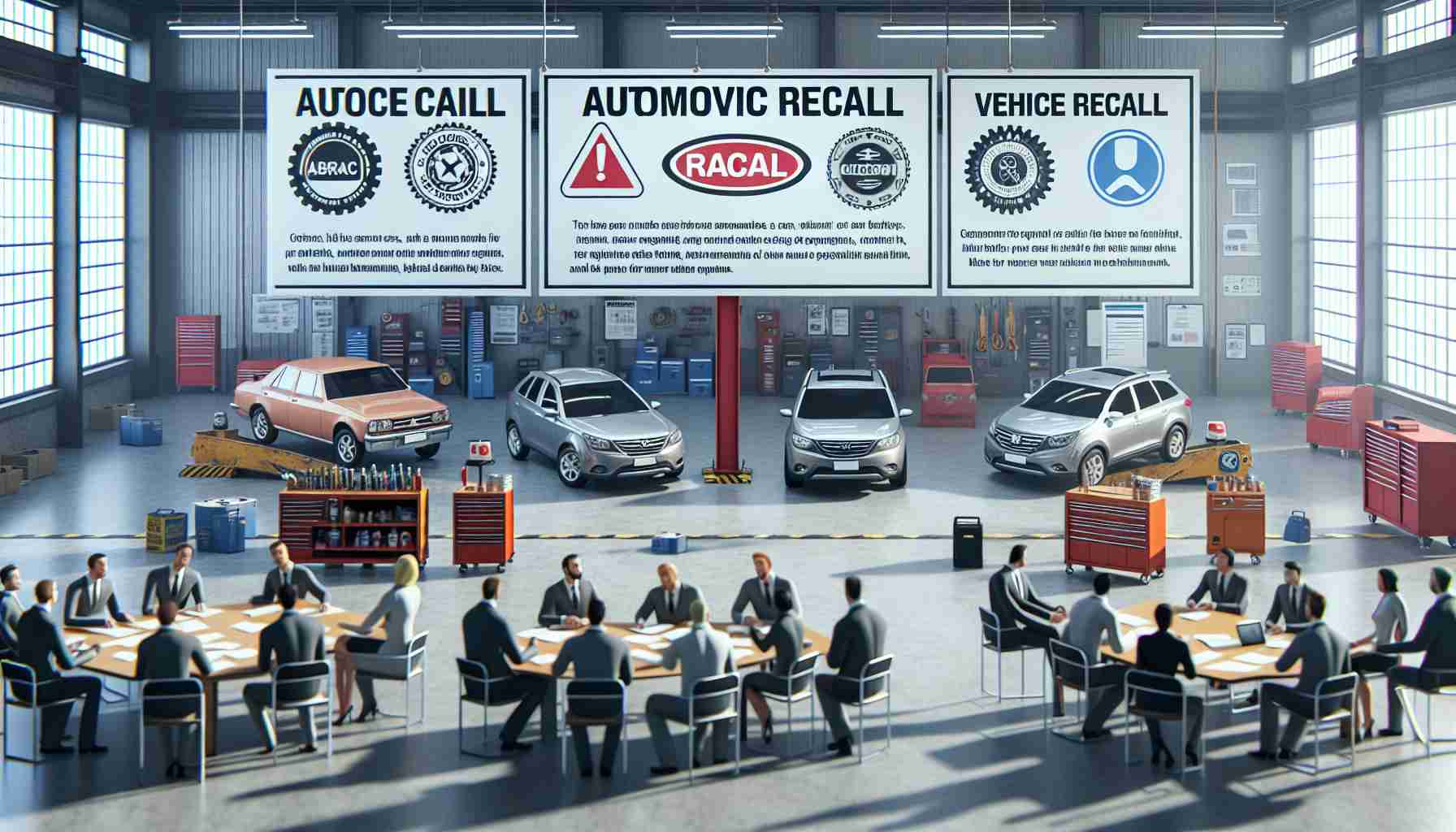Hyundai Announces Kia Model Recall
Hyundai Motors (China) Investment Co., Ltd announces a recall plan to address a fire risk in certain Kia hybrids. The company plans to start the recall on June 18, 2024, for Kia models manufactured between October 4, 2016, and October 30, 2018, totaling 2,393 vehicles. The defect lies in the hydraulic clutch actuator, where foreign objects during manufacturing or transport may result in a potential short circuit. The company has committed to a free inspection and necessary replacement of affected parts for the recalled vehicles.
Mercedes-Benz Initiates Vehicle Software Update
Mercedes-Benz (China) Automotive Sales Co., Ltd has also filed a recall plan, effective immediately, targeting 51,536 vehicles produced from July 5, 2018, to February 19, 2021. The affected models include the A-Class, B-Class, CLA, GLB SUV, GLE SUV, and GLS SUV. The issue pertains to the rear fog light symbol on the combination instrument cluster, which fails to meet national standards. Mercedes-Benz will upgrade the instrument control unit software at no charge to owners.
Jiangsu Yueda Kia Recalls Hybrid Automobiles
Following suit, Jiangsu Yueda Kia Motor Co., Ltd declares a recall from June 11, 2024, for the newest generation of K3 plug-in hybrid vehicles, involving 1,307 cars. Similar to the Hyundai recall, the fault revolves around the hydraulic engine clutch actuator, presenting a fire hazard. The concerned cars will undergo an inspection and necessary HCA replacement free of charge.
Dongfeng Motor Recalls Electric Vehicles
Finally, Dongfeng Motor Co., Ltd recalls its electric Ariya models produced from August 30, 2022, to May 31, 2023, with a total of 170 cars affected. Here, the drive motor assembly presents an issue with oil seal damage leading to oil leaks, which can cause short circuits due to a buildup of solidified carbon brush powder. Dongfeng will replace the motor assembly for all cars in the recall scope without cost to customers.
Owners of the vehicles mentioned can contact the respective customer service hotlines for assistance and information regarding the recall procedures. The proactive approach taken by each company underscores their commitment to safety and customer service satisfaction.
Automotive recalls are common in the industry and are issued when a manufacturer determines that a vehicle, equipment, car seat, or tire creates an unreasonable safety risk or fails to meet minimum safety standards. Here are some additional facts, key questions, challenges, and controversies related to automotive recalls that are relevant to the topic but not mentioned in the article:
Key Questions:
1. What is the regulatory process that leads to a vehicle recall?
2. How do automotive manufacturers communicate recall information to vehicle owners?
3. What are the legal implications for manufacturers if they do not initiate a recall in a timely manner?
Answers:
1. In many countries, government agencies oversee vehicle safety. In the United States, the National Highway Traffic Safety Administration (NHTSA) monitors vehicle-related safety issues and can mandate recalls. Manufacturers may also initiate voluntary recalls after discovering safety issues themselves.
2. Manufacturers are typically required to send recall notifications to registered vehicle owners. These notices often come in the form of a letter that provides information on the nature of the defect, the risk posed, the steps to be taken for the recall, and how the owner can get the problem rectified.
3. Failing to recall vehicles in a timely manner can result in legal penalties, class-action lawsuits, and loss of consumer trust. Governments may impose fines, and in extreme cases, criminal charges may be brought against executives.
Challenges and Controversies:
– Timeliness of Recall: One key challenge is the speed at which manufacturers identify and address defects. Delays in initiating recalls can lead to accidents, injuries, and loss of life.
– Cost of Recall: Recalls can be expensive for manufacturers, involving repair costs, administration, and potential compensation for affected vehicle owners.
– Recall Effectiveness: Even after a recall is announced, getting all owners to bring their vehicles in for repair is a major hurdle. A significant percentage of vehicles affected by recalls never get the necessary fixes.
Advantages:
– Ensuring Safety: Recalls protect the public from serious safety hazards.
– Legal Compliance: Manufacturers maintain compliance with safety laws and regulations.
– Brand Integrity: Handling recalls efficiently can help retain customer trust and avert larger crises.
Disadvantages:
– Financial Cost: Recalls can be tremendously expensive for companies.
– Brand Damage: Recalls can tarnish a brand’s reputation, impacting sales and customer loyalty.
– Inconvenience: Vehicle owners may find the process of getting their vehicle fixed inconvenient and time-consuming.
For further information regarding automotive safety and recalls, vehicle owners can visit the respective government agency websites responsible for transportation safety in their country such as the NHTSA for the United States (NHTSA), the European Union Agency for Automotive Recall and Market Surveillance (EU Vehicle Recall), and other similar agencies worldwide. Make sure that the links are valid by confirming the URLs before sharing them with others.
